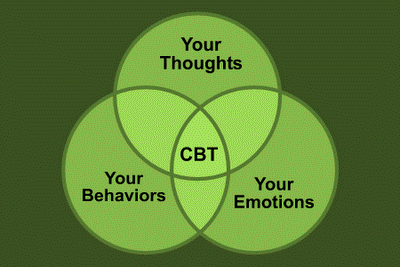How Cognitive Behavioral Therapy Reduces Depression
Forward by: Katie Keck, LMFT, Valenta, Inc.
Major Depressive Disorder (MDD) is a serious psychiatric disorder affecting approximately 1 in 8 adults in America while only 30% of the individuals suffering from MDD seek and receive treatment. These statistics display there are factors such as; stigma towards mental health, hopelessness that comes with the disorder, and access to services which are keeping people from seeking professional help. While MDD can be debilitating, it is a treatable disorder and relief can be obtained with a combination of medication and psychotherapy.
Cognitive Behavioral Therapy (CBT) is an evidenced based treatment modality for MDD, it is an active self-driven therapy guided by a trained professional. CBT aims to raise awareness of the thought, emotion, and behavior patterns individuals engage in as a result of their depression and end up becoming contributors to the depression cycle. CBT provides individuals with skills to use their new awareness to apply interventions and create healthier more adaptive patterns of functioning.
Below is an article introducing the basic components and philosophy of treating MDD with CBT. Here at Valenta, Inc. we offer Intensive Out-patient CBT based programs for adolescents and adults suffering from MDD.
More about Cognitive Behavior Therapy…
_______________________________________________
How does Cognitive Behavior Therapy reduce depression?
By: Dr David Purves
A good goal in life is to develop the ability to think accurately about things. This is harder than you might imagine but all effort is repaid ten-fold. The alternative to accurate thinking is inaccurate thinking and that leads to depression and anxiety. Let us be clear…the stakes are high.
The most effective therapeutic approach for treating low mood and clinical depression is called Cognitive Behavior Therapy or CBT. CBT is a structured approach to working on some of the better defined and understood aspects of depression and anxiety. There is good evidence that it’s both an effective and an empowering form of therapy because you’re an active participant in helping yourself.
Let us offer an example of the power of negative thought to frighten and depress you. Imagine that you’re to speak in front of a large group of people who you think are knowledgeable about your subject. You believe that your performance is important. It matters to you how well you do. Depending upon your experience of this kind of activity, your reaction might range from excitement to absolute terror. Let us assume that you’re rather more on the terror side. What’d make you feel terrified?
it’s easy to imagine that because you believe the talk to be important, you’re also aware of every possible negative outcome that you can imagine. Here are some examples:-
- I’ll make a fool of myself
- People will know I’m a fraud
- People will see I don’t know enough
- I’ll lose control and panic while I’m speaking
- People will laugh at me
If you believed that any of these were true, even likely, how’d you feel? You’d probably feel a mixture of fear, shame, guilt, despair, helplessness, panic, anger and a strong desire to run away and hide.
You’ve not even given the talk. All of these emotions are the result of how you imagine it might go. Suppose you give the talk and it’s a success. Will you forget the powerful emotions you felt beforehand? Realize that they were unfounded? Probably not. They remain in place and the next time you’re called upon to speak they come back again, to ruin the experience. Strange as it may seem, you’re probably more likely to remember the negative thoughts and feelings rather than the actual fact that you gave a good talk.
This example illustrates one of the bases for depression and anxiety.
The negative things you believe about yourself and the world are often more powerful than reality. The fact that they’re wrong doesn’t diminish their power. Because you believe they might come true next time.
It’s not events themselves that are depressing it’s your interpretation of them.
In low mood and depression it’s very common to hold a series of self-defeating and damaging beliefs about yourself. These beliefs detract from your ability to enjoy your life. If they’re very strong they can even make your very survival problematic.
Many of the negative beliefs you hold about yourself have never been demonstrated, neither is there any evidence to support them. Suppose you gave a successful talk 99 times and one time you gave a poor talk. Which would be the most memorable and which would you think most accurately reflected who you’re?
We reckon it’s the one bad talk. All of your life you’ve probably had normal everyday experiences. it’s very rare for the negative beliefs you hold about yourself to have been demonstrated in reality. They reside in your mind and direct you to feel bad. There is probably little or no evidence that they reflect reality.
CBT is a means of accessing these damaging negative beliefs and finding ways of understanding their actions and then testing them against reality. This process is easy to describe but in reality it’s a profound re-working of the most fundamental negative beliefs you hold about yourself, the world and your future. Allowing reality to bath your deepest held negative beliefs can be a great relief and is definitely a life changing experience.
For more information about Cognitive Behaviour Therapy and Mental Health Therapy, Please Visit: mental-health-and-wellbeing.com
http://stressanxietyguide.com/how-does-cognitive-behavior-therapy-reduce-depression-dr-david-purves/

